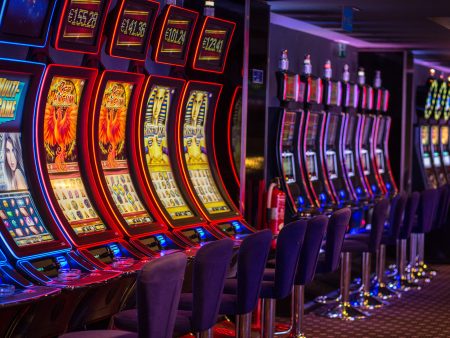

Gambling has long been a popular form of entertainment around the world, with casinos and other gaming establishments raking in billions of dollars in revenue each year. But have you ever stopped to consider how this lucrative industry operates? In this article, we’ll explore the economics of gambling and how both casinos and governments profit from this activity.
Gambling has been around for centuries, and throughout that time, it has always been a profitable industry for both casinos and governments. In recent years, the gambling industry has exploded in popularity, with casinos popping up all over the world, and online gambling becoming more and more accessible. But have you ever wondered how these casinos make their money? Or how governments benefit from the gambling industry?
How the casino earns money
At the most basic level, casinos make money by offering games that have a built-in house edge. This means that over time, the casino is mathematically guaranteed to make a profit, regardless of how much individual players win or lose. Games like slots, blackjack, and roulette all have different house edges, with some being more favorable to players than others. But even in the most player-friendly games, the casino still has a statistical advantage that ensures long-term profitability. Now we will list a few ways to single-digit casino earnings:
- One way casinos make money is through the house edge. The house edge is the statistical advantage the casino has over the player in a particular game. For example, in a game of blackjack, the house edge might be 1%, meaning that over time, the casino can expect to make 1% of all the money that’s bet on the game.
- Another way casinos make money is through player mistakes. Many casino games require skill and strategy, and players who don’t understand the game’s rules or optimal strategy are likely to make costly mistakes. In games like slot machines, where there is no skill involved, players may simply keep playing in the hope of hitting the jackpot, even though the odds are stacked against them.
- Casinos also make money from players who become addicted to gambling. These players may keep playing despite losing money, often spending more than they can afford. While most casinos have responsible gambling policies in place to help prevent this kind of behavior, some unscrupulous operators may encourage it.
In addition to the revenue generated by the games themselves, casinos also make money through a variety of other means. For example, they may charge for amenities such as hotel rooms, restaurants, and entertainment. They may also offer memberships or loyalty programs that incentivize players to keep coming back.

How the government benefits from casinos
But it’s not just casinos that benefit from gambling. Governments also make a significant amount of money from the industry. In many countries, casinos are heavily regulated and taxed, with the government taking a portion of each casino’s profits. This revenue can then be used to fund a variety of public services, such as education, healthcare, and infrastructure. The way governments profit from gambling varies from country to country, but there are some common approaches that are used:
- One of the most common methods is through taxes on gambling revenue. Governments may levy taxes on the profits that casinos and gambling companies make, either as a percentage of their revenue or as a flat fee. These taxes can range from a few percent to as much as 50% or more, depending on the jurisdiction.
- Another way that governments make money from gambling is through licensing fees. In order to operate legally, casinos and gambling companies must obtain a license from the government. These licenses can be expensive, with some jurisdictions charging millions of dollars for the privilege. Governments may also charge annual renewal fees for these licenses, further adding to their revenue.
- Some governments also operate their own gambling operations, such as lotteries and sports betting. In these cases, the profits generated by these operations go directly to the government, rather than to private companies.
While the revenue generated by gambling can be a boon for governments, there are also concerns about the social costs of gambling addiction and related problems. As such, many governments have put in place measures to mitigate these risks, such as promoting responsible gambling and providing resources for those who may have a problem with gambling.

The economics of gambling are not without controversy. Some argue that the industry preys on vulnerable individuals, particularly those with gambling addictions, and that the societal costs of gambling may outweigh the financial benefits. Others argue that gambling is a legitimate form of entertainment and that individuals should be allowed to make their own choices about how they spend their money.
Regardless of one’s personal beliefs about gambling, it’s clear that the economics of the industry are complex and multifaceted. From the casinos themselves to the governments that regulate them, many different parties stand to gain from this highly lucrative activity.
At its core, gambling is an industry that thrives on risk-taking and the potential for large payouts. Casinos are businesses that operate to make a profit, and they do so by offering games that are designed to provide an edge to the house. This edge, known as the house edge, ensures that the casino will make money over the long run, even if individual players win big in the short term.
Governments also play a role in the economics of gambling, as they often regulate and tax the industry. In many countries, governments have created legal frameworks that allow casinos to operate legally and generate revenue for the state. Governments may also take a share of the profits generated by casinos in the form of taxes or other fees.
To keep abreast of all the news and events in the world of online casinos, we recommend visiting the Blog and articles section of our website. There you will find the latest and most interesting materials about new games, bonuses, promotions and much more. We constantly update this section so that our players always have access to relevant information.











